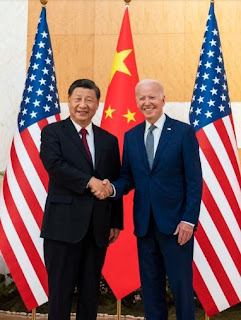Russian Military Activity Near Japan Prompts Concerns
Presence of Russian Warships in Vicinity of Taiwan and Okinawa Islands Raises Regional Security Concerns
In recent developments, the international community has taken notice of the presence of Russian warships in the vicinity of Taiwan and the Okinawa Islands in Japan.
This occurrence has sparked concerns regarding regional security, given the geopolitical implications and potential consequences for the balance of power in the region. In this article, we aim to provide an overview of the situation, analyze the possible motivations behind Russia's naval presence, and examine the implications for regional stability.
Background:
As reported by various sources, including a recent article by Firstpost, Russian warships have been observed in the waters near Taiwan and the Okinawa Islands.
These sightings have captured the attention of governments, military analysts, and scholars who closely monitor geopolitical developments in the Asia-Pacific region. Given the historical context and ongoing tensions between major powers, the presence of Russian warships in this sensitive area requires careful examination.
Motivations and Potential Implications:
Understanding the motivations behind Russia's decision to deploy warships near Taiwan and the Okinawa Islands is crucial in assessing the potential implications for regional security.
While Russia has stated that the presence of its warships is part of routine military exercises, there are several factors that warrant closer scrutiny.
Geopolitical Considerations:
Russia's naval presence in the Asia-Pacific region serves its strategic interests. It allows Russia to project power beyond its traditional sphere of influence and assert itself as a global player.
By demonstrating its military capabilities in this manner, Russia aims to enhance its geopolitical leverage and establish itself as a significant player in the region.
Balancing Act:
Russia's move to deploy warships near Taiwan and the Okinawa Islands can also be seen as a response to the increased presence of other major powers in the region.
With the United States, China, and Japan all vying for influence, Russia's actions can be viewed as an attempt to maintain a delicate balance and protect its own interests.
Diplomatic Significance:
The presence of Russian warships in the region holds diplomatic significance. It serves as a message to both regional and global powers that Russia remains an active participant in Asian affairs.
This move could also be interpreted as an attempt to forge alliances or strengthen existing partnerships, depending on the response from other countries.
Regional Security Implications:
The presence of Russian warships near Taiwan and the Okinawa Islands has potential implications for regional security. While the situation does not directly involve Russia and Taiwan or Japan, it contributes to the already complex dynamics in the region.
The following areas merit attention:
Increased Tensions: The presence of foreign warships inevitably raises tensions and concerns among neighboring countries. Given the existing territorial disputes and strained relationships in the Asia-Pacific, this development could further exacerbate regional tensions and trigger responses from other powers.
Strategic Rivalries: The presence of Russian warships in close proximity to areas of interest for other major powers may intensify strategic rivalries. The United States, China, and Japan, in particular, may interpret this move as a challenge to their own influence in the region, potentially leading to a heightened sense of competition and an increased arms race.
keynote:
The presence of Russian warships near Taiwan and the Okinawa Islands signifies a significant development in the geopolitical landscape of the Asia-Pacific region.
While Russia asserts that this presence is part of routine military exercises, the motives behind these actions warrant closer scrutiny. As regional security concerns intensify, it becomes imperative for relevant stakeholders to engage in diplomatic dialogue and strategic cooperation to ensure stability and avoid escalation in an already complex geopolitical environment.












